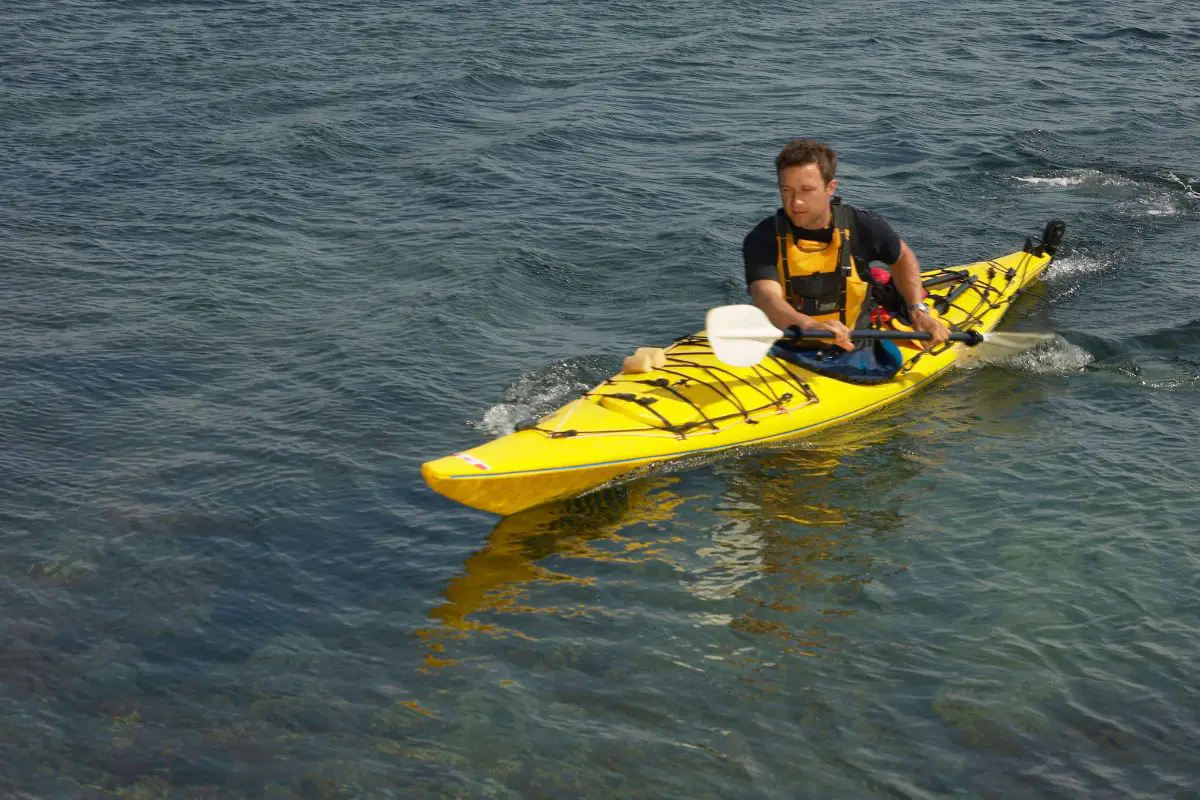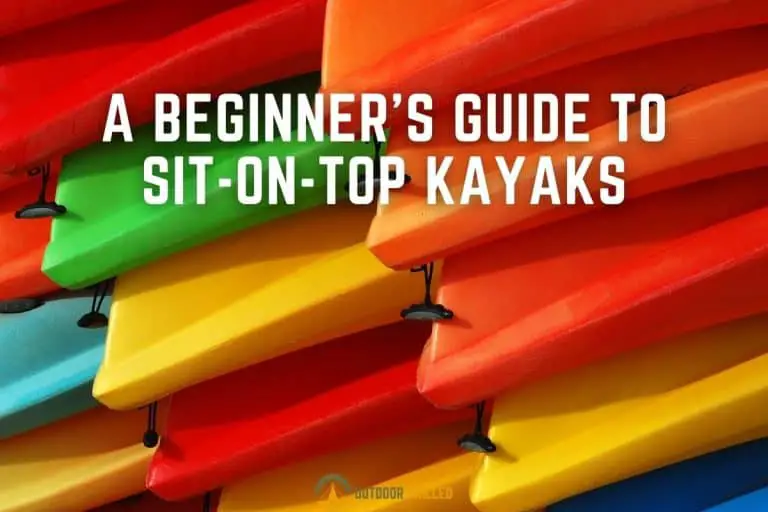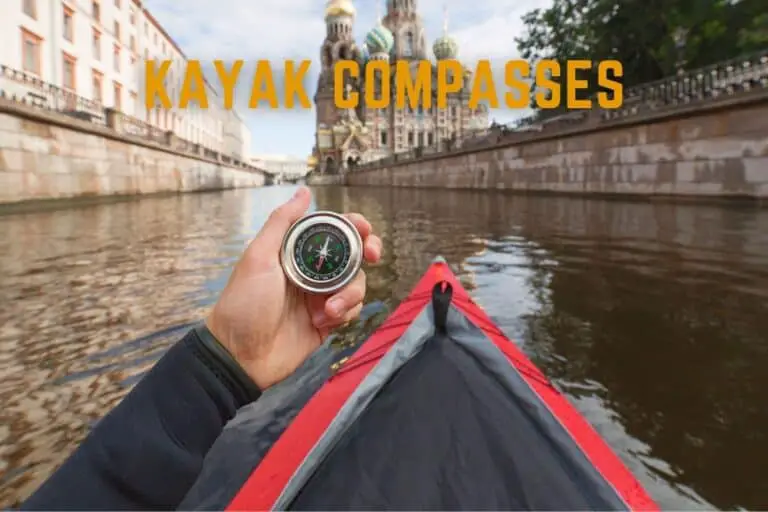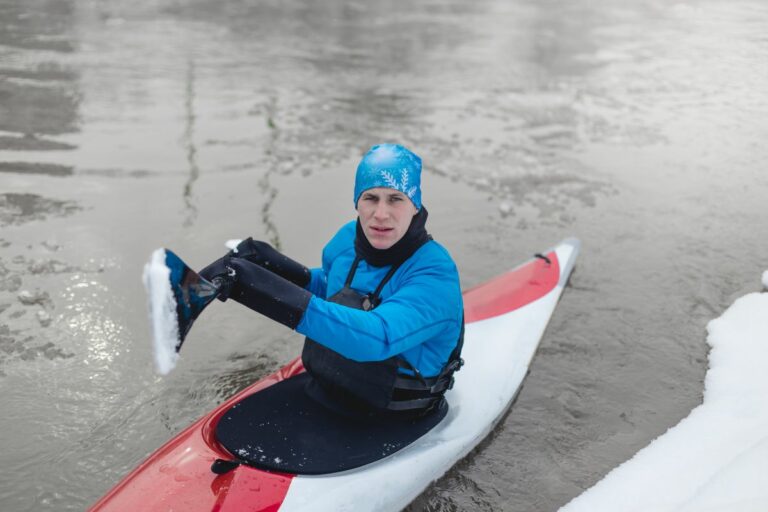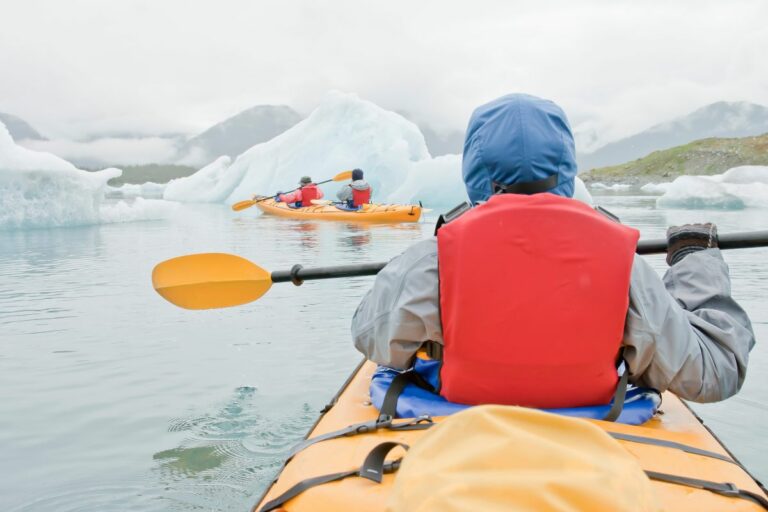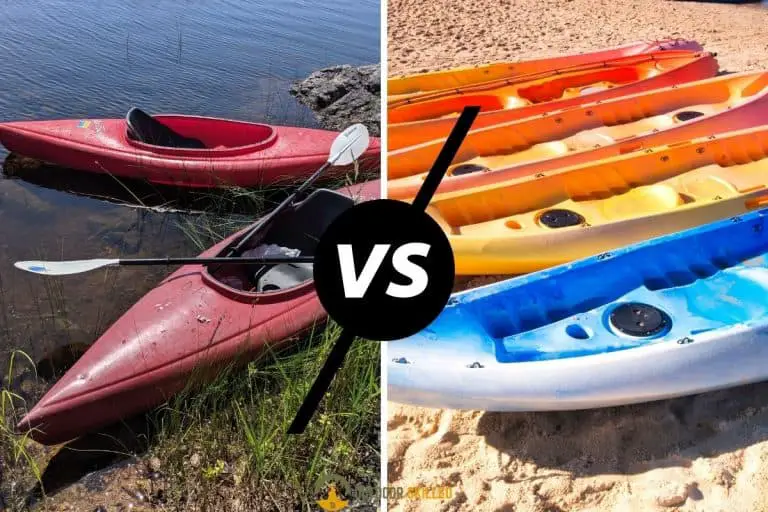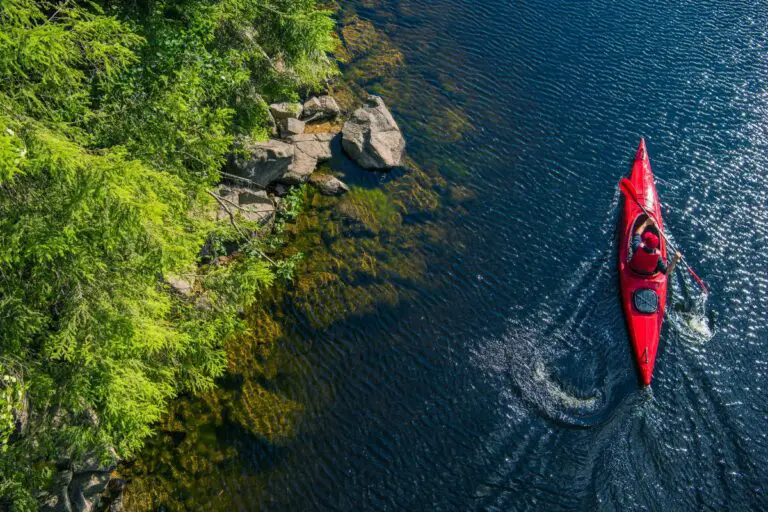Can A Sea Kayak Be Used in A River? If You Know This…
Choosing the right type of kayak can make a big difference in your overall experience, depending on where you plan to use it. For instance, sea kayaks and river kayaks are designed for different environments with different water conditions.
But what happens if you only have a sea kayak and want to tackle a river? Can a sea kayak be used in a river?
A sea kayak can be used in a river, but it may not be the best option. That is because sea kayaks are designed for open water conditions and have different characteristics than river kayaks, which means they’ll be harder to maneuver in river conditions and could pose some risks.
Keep reading to learn more about the characteristics of sea kayaks and what makes them different from river kayaks.
Table of Contents
What Are Sea Kayaks Like?
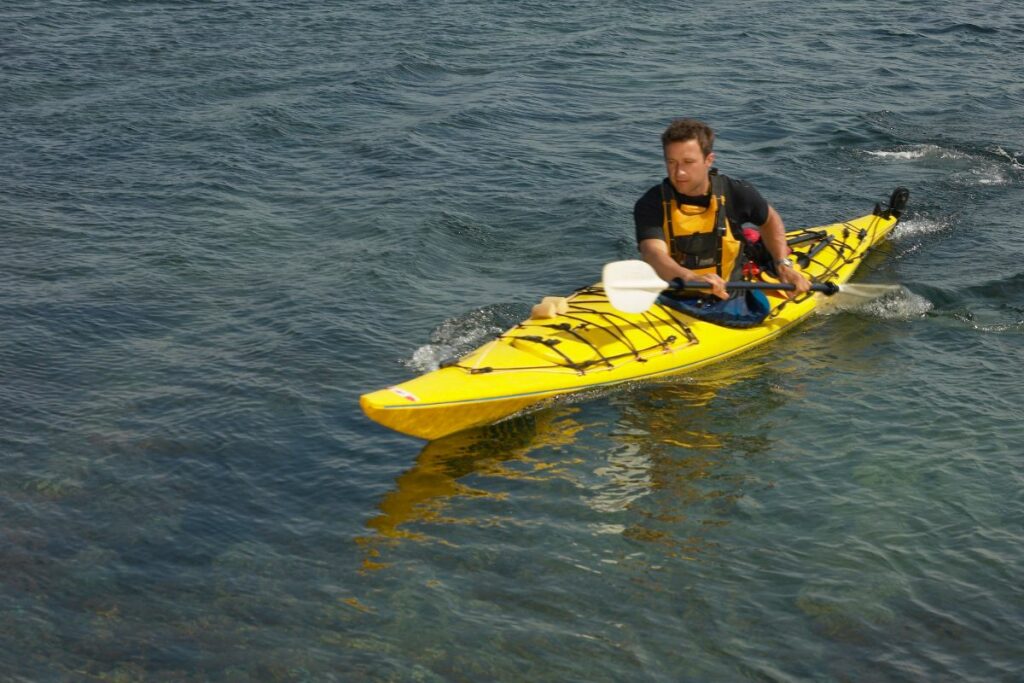
Sea kayaks are designed to perform well in open water conditions, including oceans, large lakes, and bays.
They typically have a long and narrow shape, with a length of 12 to 18 feet and a width of 20 to 25 inches. They have a pointed bow and stern, which helps the kayak cut through waves and reduce drag, allowing it to maintain speed and maneuverability even in rough water.
The hull of a sea kayak is usually smooth and rounded, with a shallow V-shape that provides stability and helps to track straight. This allows the paddler to cover long distances with less effort, making them ideal for multi-day expeditions.
The cockpit of a sea kayak is generally smaller than other kayaks, providing a snug fit that enhances control and reduces wind resistance.
Additionally, sea kayaks often have a range of features that make them more suitable for open water conditions.
These can include rudders or skegs that aid in tracking, bulkheads that create separate watertight compartments for storage and safety, and deck lines that provide a means of securing gear or rescuing other paddlers.
In terms of materials, sea kayaks are typically made from durable materials such as fiberglass, plastic, or composite materials. These materials offer strength and resilience to handle rough seas while keeping the kayak lightweight and easy to maneuver.
What Is the Difference Between Sea Kayaks and River Kayaks?
While both sea kayaks and river kayaks share many similarities, they are designed with different characteristics to suit the specific conditions of their respective environments.
River kayaks are designed to handle fast-moving water and rapids and are typically shorter and wider than sea kayaks. They have a more rounded hull shape with a higher rocker, allowing them to turn quickly and maneuver in tight spaces.
The paddling techniques used for a sea kayak and river kayak are also quite different, as sea kayaks require a more efficient and consistent paddling rhythm to maintain speed and momentum, while river kayaks require a more dynamic and reactive approach to navigate the fast-moving water and obstacles.
Can A Sea Kayak Be Used in A River?
Sea kayaks can be used in rivers, but they may not be the most suitable choice as they won’t be easy to maneuver in the fast-moving water and rapids typically found in rivers.
The long and narrow design of a sea kayak can make it challenging to navigate through tight spaces and quickly maneuver around obstacles, particularly in rivers.
Additionally, the larger cockpit area and heavier weight of a sea kayak may make it harder to exit quickly if you capsize.
However, if the river conditions are relatively calm and there are no significant rapids or obstacles, a sea kayak can be an enjoyable way to explore a river.
If you do choose to use a sea kayak in a river, try to choose a kayak with appropriate characteristics, such as a shorter length, wider width, and more rounded hull shape, to improve maneuverability. I recommend this Perception Carolina 14 kayak.

If you want more options, check out my recommendations for the best ocean kayaks here.
It’s also important to ensure you have the necessary skills and experience to safely navigate the river, including the ability to maneuver through rapids and quickly exit the kayak in case of a capsize.
General Tips for River Kayaking
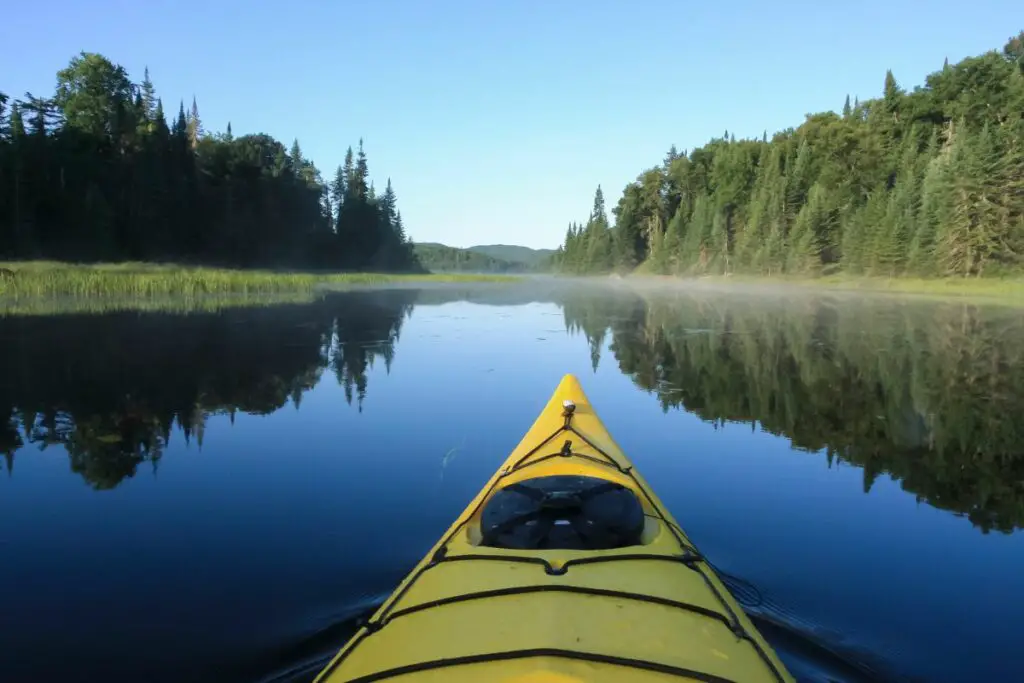
Kayaking in a river can be an exciting and challenging experience, but it’s important to take measures to ensure your safety and enjoyment on the water.
So, here are some river kayaking tips to keep in mind:
- Wear appropriate gear: Wear a personal flotation device (PFD) at all times, and consider wearing a helmet, especially if the river has rapids or obstacles. A wetsuit or dry suit can also provide protection from cold water and reduce the risk of hypothermia.
- Check the weather and water conditions: Check the weather forecast and water conditions before heading out on the river. Avoid kayaking in high water or flood conditions, and be aware of any river closures or warnings.
- Paddle with a partner: Kayaking with a partner can provide extra safety and support and can be especially important in fast-moving water.
- Learn basic paddling skills: Before heading out on the river, make sure to learn basic paddling skills, including proper stroke technique, steering, and how to navigate rapids.
- Be aware of river hazards: Pay attention to the river’s current and any obstacles, such as rocks, logs, or bridge piers. Avoid strainers, which are objects in the water that can trap and entangle you or your kayak.
- Stay alert and focused: Kayaking in a river requires focus and attention to your surroundings. Stay alert and keep an eye out for any changes in the river conditions or hazards.
Conclusion
While sea kayaks can be used in rivers, it’s important to consider the specific river conditions and choose a kayak with appropriate characteristics.
If you’re unsure whether a sea kayak suits a particular river, it’s best to seek advice from experienced paddlers or outfitters.
Kayak your way to Freedom
- On a budget? Check out the best fishing kayaks under $500 here and the best Fishing Kayaks under $1,000 here. Or Check the best Cheap Kayaks here.
- Going fishing? Here are the best Ocean fishing kayaks, and here are the best River Fishing Kayaks.
- You can also find the best Fly Fishing Kayaks here and the best Bass Fishing Boats here.
- A bit experienced? Check out the best modular kayaks here and the best tandem fishing kayaks here.
- Looking for something special? Check out my favorite Ducky kayaks here.
- Navigate your way with these awesome and beginner-friendly Kayak compasses.
- Going Hunting? These Duck hunting kayaks will give you an unfair advantage!
- Have a need for speed? These motorized kayaks will get you moving.
- Protect yourself from the sun with these Kayak shades, and make your kayak more comfortable with these Kayak seats.
- Keep your feet dry and warm with these superb Kayaking shoes.
- Going Kayaking in cold water? Stay warm with these Kayaking gloves.
- Paddle Less, Fish More with the Best Kayak Motors
- Looking to get a trolling motor on your kayak? Check out the best kayak trolling motor mounts here.
If you like this article, please share it or pin it, you can find the share buttons below. We will really appreciate it ❤️

